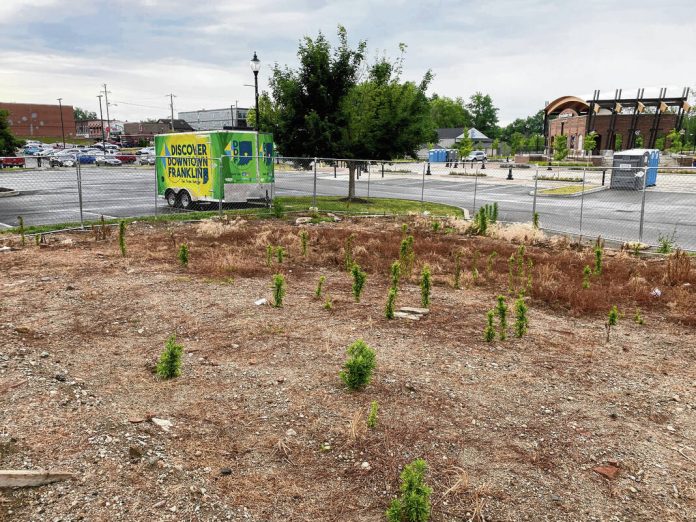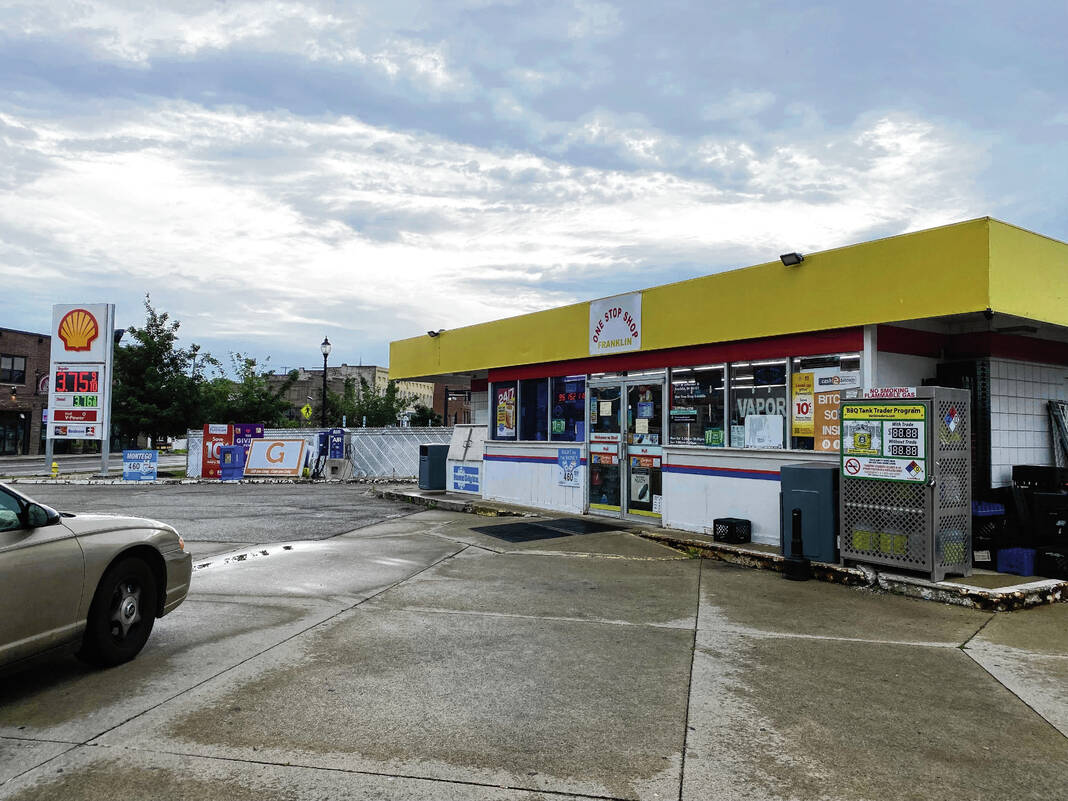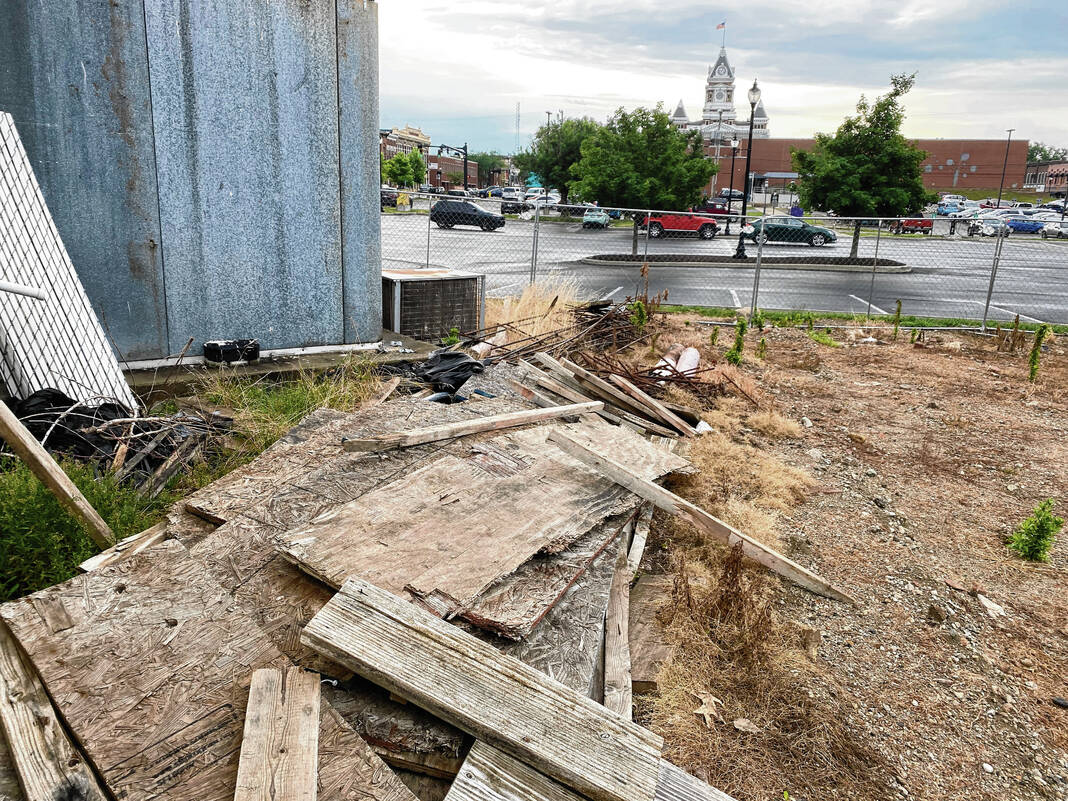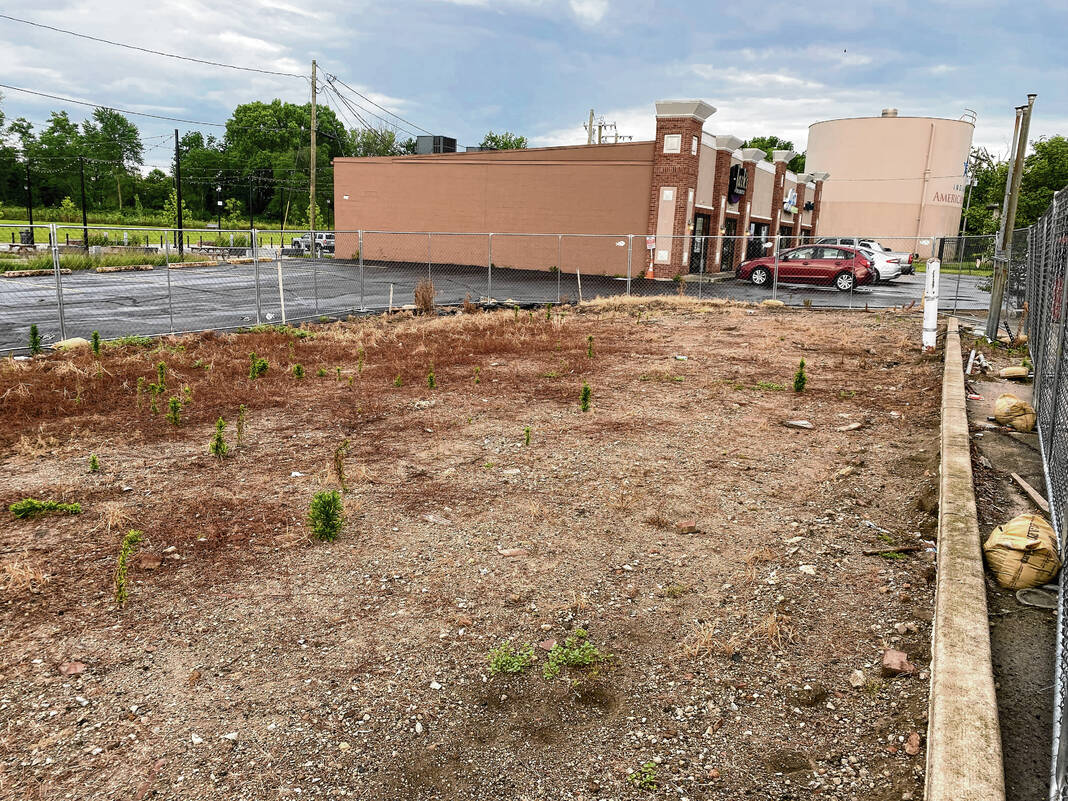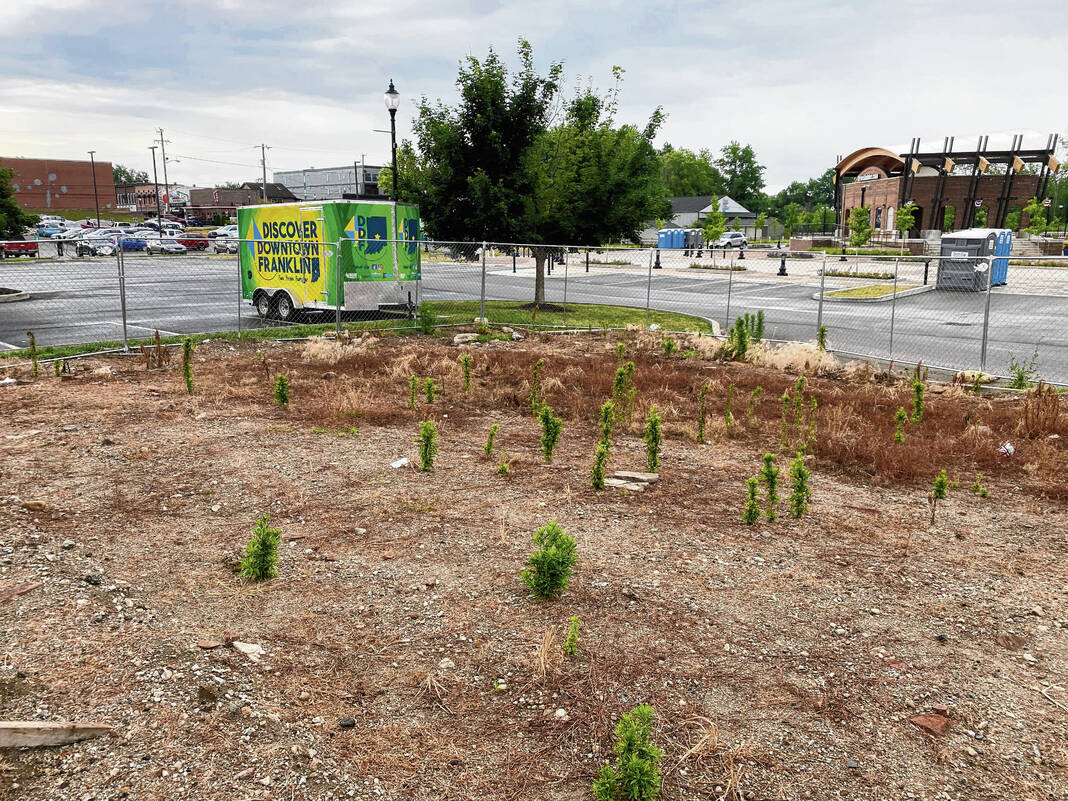A building project for a Franklin gas station has been halted because of an expired building permit.
Garcha Realty LP/DMG Petroleum, Inc. recently had its building permit expire for a construction project next to the Shell gas station at 237 W. Jefferson St. that started last year. Harry Garcha, the property owner, said the project ran into issues with floodplain requirements that cost extra money.
According to the city’s permit and inspection policy, a company with a building permit must begin work within a year of the issue date of the CDR. The permit is valid for up to three years after the issue date.
Joanna Tennell, Franklin’s senior planner, said because the permit expired, the company will have to restart the project process.
The company aimed to build a new convenience store and demolish the existing building upon completion, according to the permit application. The construction costs were estimated at $600,000 with the new convenience store’s gross floor area to be 3,200 square feet.
Tennell said the property is in the regulated floodplain so to build a new structure, the building had to meet the protection standards either by being elevated or by being constructed with flood-proof material. Flood protection standards for properties in the regulatory floodplain are a requirement of FEMA, the state and the city.
Commercial structures can choose between two ways of meeting standards: they can elevate their structure so the lowest floor is two feet above the base flood elevation or can make any portion of the structure up to two feet from the base flood elevation out of flood-resistant materials, and have either flood gates or flood vents.
“(The company) went through the process of receiving site development plan review for a structure that was gonna meet those requirements, went through the state also received the release from the state in order to meet building code, fire code and flood protection requirements,” she said. “When they started actually digging the footer that they were digging, they did not find virgin ground in order to be able to pour a footer that would meet requirements. So in this particular instance, that’s why construction had halted, it was because they had to reassess the situation on where the building is located to determine if they needed to do a different type of footing, potentially relocate the building, all of those things.”
The permit was closed last week and more construction cannot continue at the site without a new permit.
To be compliant, the company has to return the site to its original condition including completing the grading, removing the construction fence and restoring the site to pre-construction conditions including removing all the dead vegetation. The company appears to have sprayed, so the land needs to return to grass, Tennell said.
Despite breaking ground in late 2022 and early 2023, not a lot of progress has happened on the project. Next to the gas station building in a fenced area, the project site is a large rectangle of dirt with a pile of wood on the side.
Garcha said the lack of progress is because of floodplain requirements from the city and state, which came with added costs. The required features to be compliant would add $200,000 more to project costs, he said.
Garcha also questioned why his building had to adhere to standards when other buildings around him weren’t adhering to flood standards.
The gas station and most of the downtown were part of the 2008 flood zone. If a building already existed before the current floodplain maps were put in place, it is considered legally nonconforming and doesn’t have to come into compliance, Tennell said.
However, if a landowner in the floodplain does want to remodel their building, they are allowed a one-time remodel that must cost less than 50% of the structure’s value without coming into compliance, she said. Since the gas station is building a completely new convenience store, it must comply with current regulations.
Floodplain requirements weren’t the only problems Garcha and the company encountered with the building project.
Garcha said the original architect for the project died and there was also a change in contractor from Amazing Design LLC to Toor Construction.
The company also had “landscaping gone wrong” on their end that killed the vegetation at the project site, he said. Whether the company gets another permit or not, he said the vegetation will be replaced.
Despite problems, Garcha isn’t giving up on the project yet, he said.


